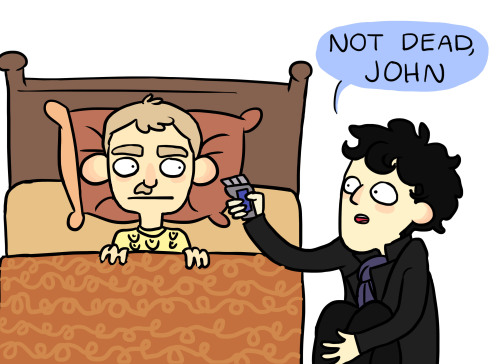Communism: A Report By Hayley
Mar 24, 2011 20:09:41 GMT -5
Post by Hayley on Mar 24, 2011 20:09:41 GMT -5
In theory, communism was a great idea. There would be no classes, everybody would share everything, and eventually, the government would go away because the people could handle it themselves. With no classes, everyone would feel equal as a people. Nobody could be snobby towards another person because it wouldn’t be like they had any more than that person did. It was a revolutionary idea! The only issue is that Karl Marx’s original version of communism would only work in a perfect world. Our world is nowhere near perfect. The key words are “in theory.” It was just a theory. There are bad people everywhere. With the concept of communism alone, we see that these bad people can change an amazing theory into something that makes people cringe when they think about it.[/blockquote]
Let’s start with the beginning. After all, isn’t that always the best place to start? This whole communism mess started with a young man named Karl Heinrich Marx. He had many theories about society, economics and politics, which are collectively known as Marxism. If asked to summarize these theories, all that could be said is that Marx thought that all society progresses through class struggle which makes complete sense. For example, if a middle class and lower class person both want the same job, the middle class person is going to get the job because of their stature in society. The lower class person will just be left out in the dust. If the lower class people never get the job, then that means more unemployed people. If too many people are unemployed, they won’t buy goods. If such a large percentage of the population isn’t buying, then the economy goes down, companies make cuts, people lose jobs and twenty five percent of the population is out of work and in debt just because of social biases. What does this have to do with Karl Marx? Marx was born into the upper middle class. He could observe how people interacted within the different classes. He could see what was wrong with this idea of classes in society. Marx knew what he was doing. He knew the uprising he was about to start.
“The worker becomes all the poorer the more wealth he produces, the more his production increases in power and range. The worker becomes an ever cheaper commodity the more commodities he creates. With the increasing value of the world of things proceeds in direct proportion to the devaluation of the world of men. Labour produces not only commodities; it produces itself and the worker as a commodity -- and does so in the proportion in which it produces commodities generally.” That’s a quote from Marx’s Economic and Philosophic Manuscripts (1844). It’s in old language, so I’ll break it down for you. Pretty much what he’s trying to say is that with the more work somebody does, the more money the company makes. In most cases, companies become greedier with more money, so they lower wages so they can hire more workers. With all these workers they can make even more products and eventually become a monopoly because of their greed.
In 1848, Karl Marx published The Communist Manifesto. It was scarcely published, but a wave of revolution broke out in Europe. Marx was not highly thought of in his time by anyone other than his young revolutionaries. He had to move from city to city every time a new revolution broke out. He was even banned from Paris! This new manifesto of his was causing such trouble. But it was giving people hope. The only problem was that he had to keep hiding out so he didn’t get murdered. Marx sought refuge in London in May of 1849 to begin the "long, sleepless night of exile" that was to last for the rest of his life. On March 14, 1883, Karl Marx died and was buried at Highgate Cemetery in North London. What happened after his death? Much more than Mr. Marx could’ve ever imagined.
Like I said earlier, there are bad people everywhere. That’s why communism doesn’t work in our non-perfect world. Let’s take a look at one of these interesting subjects commonly known as Joseph Stalin.
Out of these three men, Joe Stalin has to be my favorite. Joseph Vissarionovich Djugashvili was born in Gori, Georgia. He changed his name a million and one times before finally settling on Stalin, which means “man of steel” in Russian. Eventually, he moved on up to the East Side, A.K.A. Russia. After years ofcorrupting the governmenthard work, he became the first General Secretary of the Communist Party. He had his own little way of running the USSR. First of all, he had this thing called The Great Purge. That was a series of campaigns of political repression and persecution that he orchestrated himself. It involved a large-scale purge of the Communist Party government officials, repression of peasants, Red Army leadership, and the persecution of people opposed to Communism. In short, Stalin eliminated all of his party opponents so he could do whatever he wanted. Second, he created a cult of personality within the USSR. He renamed cities and towns after himself to provide himself a more significant role in his country. He also forced people into communes, or collectivized farms. He used these communes to farm his industrial monster. This monster was a result of the first of Stalin’s three Five Year Plans (What was with this guy and five year segments?). Stalin planned to modernize the Soviet Union in the five years. He succeeded in four.
He was also a big fan of terror, as seen in The Great Purge. This man killed 20 million people! How?! How do you kill 20 million people in twenty-five years? That’s 800,000 people a year! Joseph Stalin murdered nearly 70,000 people a month. That’s an unachievable thing. It sounds impossible. Apparently it’s not, because he did it, but it still sounds pretty darn hard to do. I can’t even begin to grasp how he did that. I know this all sounds redundant, but it’s just that amazing! Not amazing in an admirable way, but amazing in a ridiculously creepy way. He had to have his secret police out killing every second of every day. It’s just crazy trying to understand how he did that.
What do all of these different aspects have to do with each other? Stalin drove his communist machine with modernization. His communist world was one of money, money, money. “Make the people fear, and they will work harder.” That should’ve been his slogan. Now that I think about it, that probably was his motivation. Stalin was so mentally screwed up that he probably thought that the key to success was fear. I’m not saying that he was wrong, because that tool is still used today but on a much smaller scale. What kind of person would use his mind like that to think of such an innovative way to get what he wanted? A very smart person, that’s who. I’m trying to see this from his perspective as well as the history books’, but it’s difficult. After all, isn’t history written by the winners? The losers don’t want to write that they lost. The issue with this is that the winners will alter the information some to make themselves seem even more awesome than they already thought they were. Most historical writing is biased like that, and you can often tell. What I’m really trying to say is that Stalin was bad, I can admit to that. What I also have to admit to is that he was extremely intelligent. An ignorant person never would’ve been able to control a people like that. Joe Stalin was a smart guy. He just had misguided intentions.
Communism turned into a bad thing. Karl Marx never could’ve anticipated that, though. He thought he was starting something revolutionary, and he was. We just have to work out the bugs. If Mr. Marx was here now, he would probably be horrified at what his brain child has turned into. I know we are. Communism isn’t necessarily something that needs to be stopped completely. It’s something that needs to be studied and fixed, so the original idea can push through. It’s like that game, Telephone. The first words that are whispered are never what come out at the end. Just think of communism as one big, never-ending game of Telephone.




























































